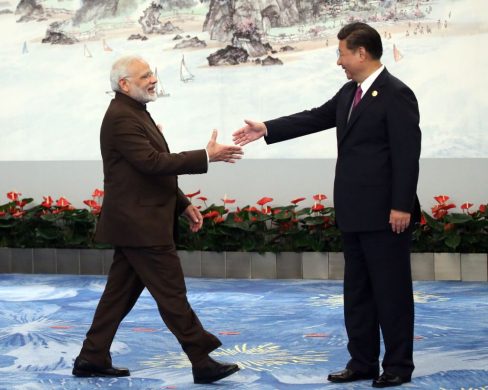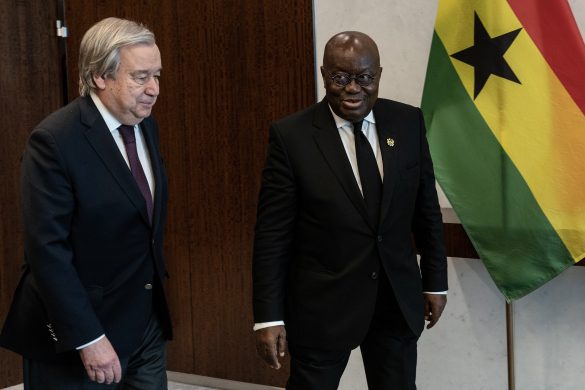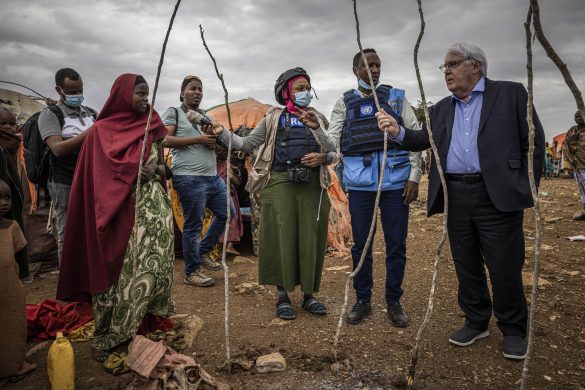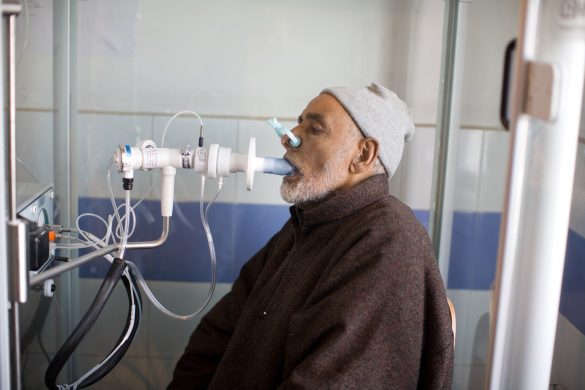Tøjbranchen og regeringen har indgået en partnerskabsaftale, der skal være med til at forbedre arbejdernes løn, sikkerhed og rettigheder, mindske miljøbelastningen og skabe større åbenhed om de danske tekstilfabrikanters leverandører i u-landene.
På et møde i Udenrigsministeriet fredag indgik udviklingsminister Christian Friis Bach (R) og handels- og investeringsminister Pia Olsen Dyhr (SF), fagforeninger, folkelige foreninger og hovedparten af den danske tøjbranche et partnerskab om at arbejde for at forbedre forholdene for arbejdere i Bangladeshs tøjbranche.
Man kan læse aftalen i sin helhed som dokument i bunden af artiklen.
Sideløbende med den danske aftale har 24 (fredag var det 31) store vestlige selskaber, som bl.a. tæller H&M, Benetton og Helly-Hansen, underskrevet en multinational aftale med samme formål – se mere på http://www.industriall-union.org/bangladesh-accord-on-fire-and-building-safety-released
Det sker kort efter, at tekstilfabrikken Rana Plaza i Bangladesh styrtede sammen med flere end 1.100 omkomne som resultat, den største industriulykke i landets historie.
Partnerskabet lægger vægt på arbejdernes løn, sikkerhed og rettigheder, et bedre miljø og mere åbenhed om de danske tekstilfabrikanters leverandører.
Ringe forhold hele vejen igennem
Næsten 4 millioner er ansat i tekstilindustrien i det fattige sydasiatiske land. Lønningerne er lave, nærmest på sulteniveau, arbejdsforholdene ringe, sikkerhedsforanstaltningerne ligeså; således mangler der ofte brandværn på de titusinder af fabrikker i “verdens systue”.
Morten Lehmann, næstformand i organisationen Dansk Initiativ for Etisk Handel (DIEH), der har en stribe hjemlige tekstil-virksomheder som medlemmer, er godt tilfreds.
”En bredt partnerskab med alle interessenter, som vi har indgået i dag, er den eneste vej frem for den svære opgave at forbedre arbejdsforholdene ved symaskinerne i Bangladesh. Når både regering, fagforbund, folkelige foreninger og tøjbranchen spiller ind med hvad de kan gøre, så har vi chancen for at flytte noget. Det her er et startskud på et forstærket bredt samarbejde, som jeg ser frem til,” siger Lehmann.
Partnerskabet lægger op til at parternes indsats for bedre produktionsforhold bliver evalueret i begyndelsen af næste år.
To glade ministre
De to ministre er glade for, at arbejdet med bedre sikkerhed, bedre arbejdsforhold og bedre løn for tekstilarbejderne i Bangladesh kan tage et spring fremad i de kommende år.
”Hverken den danske regering, de danske tekstilfabrikanter eller de danske tøjkøbere kan være tjent med, at tekstilarbejderne i Bangladesh arbejder under kummerlige forhold til en ussel løn. Nu forpligter vi hinanden på at skabe forbedringer, og det skal vi måles på i de kommende år,” siger Christian Friis Bach.
Pia Olsen Dyhr uddyber:
”Planen om at skabe et bredt dansk partnerskab for mere ansvarlig tekstilproduktion blev lavet for flere måneder siden. Men sammenstyrtningen af Rana Plaza var en frygtelig katastrofe, der understreger behovet for, at regeringen og tøjbranchen i samarbejde med fagforbund og folkelige foreninger handler med det samme”.
“Vi har i dag indgået et partnerskab, og nu skal vi så i gang med hvad vi kan gøre for at en sådan katastrofe ikke sker igen, og at arbejderne i øvrigt får rimelige vilkår,” siger Pia Olsen Dyhr.
Fredag kritiserede Danwatch aftalen for at være for vag: Se telegrammet Danwatch: Ny aftale om tøjproduktion i u-landene er for vag – http://www.u-landsnyt.dk/nyhed/17-05-13/danwatch-ny-aftale-om-t-jproduktion-i-u-landene-er
D O K U M E N T
Aftalen i sin helhed, udformet på engelsk og indgået 17. maj 2013
Den fremtræder i alt væsentligt som en hensigtserklæring.
PARTNERSHIP FOR RESPONSIBLE GARMENTS AND TEXTILES PRODUCTION IN BANGLADESH
Conditions in the garment and textile sector in Bangladesh have been the subject of much concern lately caused by several recent deadly disasters claiming hundreds of human lives and resulted in much debate, both in the country itself and internationally among stakeholders such as buying houses, producers, employers’ associations, trade unions, governments, and NGO’s.
The issue also affects stakeholders in Denmark and their partners in Bangladesh.
Acknowledging our duties to protect and respect human rights in accordance with the UN Guiding Principles on Business and Human Rights, we will work towards achieving concrete progress within the following areas in the garment and textile sector in Bangladesh:
* Workers’ rights and safety
* Greener production
* Increased transparency in buyers’ supply chains
The Ministry of Foreign Affairs will do the following:
Workers’ Rights and Safety
– Support efforts by the government in Bangladesh, likeminded governments, ILO and international companies to improve the working environment for local trade unions in the textiles sector and support the efforts to establish a real social dialogue between employers’ associations, local companies and trade unions, including on wage issues.
– Through political dialogue support the promotion of effective and genuinely representative occupational health and safety committees as a mechanism for worker management dialogue
– Within the framework of the EU in Dhaka work with like-minded governments, international companies and international employers’ associations to support a reasonable upward adjustment of Bangladesh’s legal minimum wage in 2013
– Within the framework of the EU in Dhaka support the initiative by the ILO for labour reform in Bangladesh to ensure the inclusion of the rights to freedom of association and free collective bargaining in Bangladeshi labour legislation as well as occupational health and safety.
– Support the international Accord on Fire and Building Safety in Bangladesh, targeting the garment and textiles industry in Bangladesh
– Within the framework of NCCIB (Nordic Chamber of Commerce and Industry Bangladesh) call for continued engagement by Nordic companies in Bangladesh in tandem with support from the companies for responsible garments and textiles production in the country
– With the government of Bangladesh advocate effective enforcement of the National Tripartite Plan of Action on Fire Safety.
Motivate greener production in Bangladesh
– Encourage greener production and responsible use of chemicals, energy and water resources in garments and textiles production. For instance via establishment of commercially-driven partnerships with support from Danida Business Partnerships.
– Advocate programs to increase the awareness of chemical hazards and promote best practice in chemical and water management.
Increased transparency in buyers’ supply chains
– Support company initiatives for increased transparency in their supply chains in Bangladesh. In its dialogue with stakeholders the Ministry of Foreign Affairs will in general be in favour of seeking gradual improvements in working conditions at Bangladeshi suppliers as opposed to the immediate interruption of business relations.
– The Danish companies and employers’ associations in the garment and textile sector will continue present efforts and in collaboration with their international partners do the following:
Respect workers’ rights and improve safety
– Advocate for a reasonable upward adjustment of Bangladesh’s legal minimum wage in 2013 and respect increasing wages in their pricing policies and procedures.
– Support efforts by the Global Union Federation IndustriAll and the Danish trade union organisations working in the country to improve capacity and engagement of local and truly representative trade unions in the Bangladeshi ready-made garment sector (RMG) and the development of lists of local RMG factories with organised labour.
– Support the international Accord on Fire and Building Safety in Bangladesh and if feasible participate in the Accord.
– Support the initiative of the NCCIB in Bangladesh for continued engagement and responsible garments and textiles production in the country.
– Ensure valid factory safety inspections of companies in Bangladesh with whom Danish companies intend to sign supplier contracts preferably with local resources and worker representatives.
– Join forces with international partners to leverage their buying power vis-à-vis common suppliers on issues like factory safety and contracting orders out to sub-suppliers.
Promote Greener Production
– Exercise due diligence in Bangladesh with regard to hazardous chemicals in garments and textiles and their compliance with the EU’s REACH Directive
– Contribute, whenever feasible, to greener production including more responsible use of chemicals, energy and water resources in Bangladesh
Increase transparency and concerted actions
– Improve efforts in Bangladesh to identify suppliers and/or sub-suppliers for urgent improvement actions and take the necessary measures if feasible in collaboration with other customers and/or local resources and worker representatives.
– Contribute to the development of a feasible mechanism for visibility of supplier lists from Bangladesh to credible social partners to enhance improvements through concerted actions and increase transparency.
Partnership platform
The partners acknowledge the already on-going initiatives being conducted by Danish companies in Bangladesh. The partners agree that human and financial resources at the disposal of Danish companies active in the garment and textile sector in Bangladesh vary a lot.
The Ministry of Foreign Affairs encourages larger companies to take a lead in carrying out the partnership commitments for companies. It also recognizes that smaller companies should act on the partnership commitments to do what is realistically possible for them.
Danida offers financial support through Danida Business Partnerships and the new CSR facility to carry out activities to increase ethical trade, improve workers’ rights and safety as well as greener production. In addition the Embassy offers support through the Trade Council on commercial basis.
The partners will coordinate action within the framework of the Danish Ethical Trading Initiative and update each other on progress in regard to each commitment. They will meet in the spring of 2014, for a common review.
To achieve the necessary broad-based platform for action the partners will draw on the joint efforts of the Ethical Trading Initiatives to drive sustainable change in the sector.
The Ethical Trading Initiatives in UK, Norway and Denmark will launch a joint programme to improve the conditions in the garment and textiles sector and assist the partners in addressing the commitments of the partnership.
(slut)















